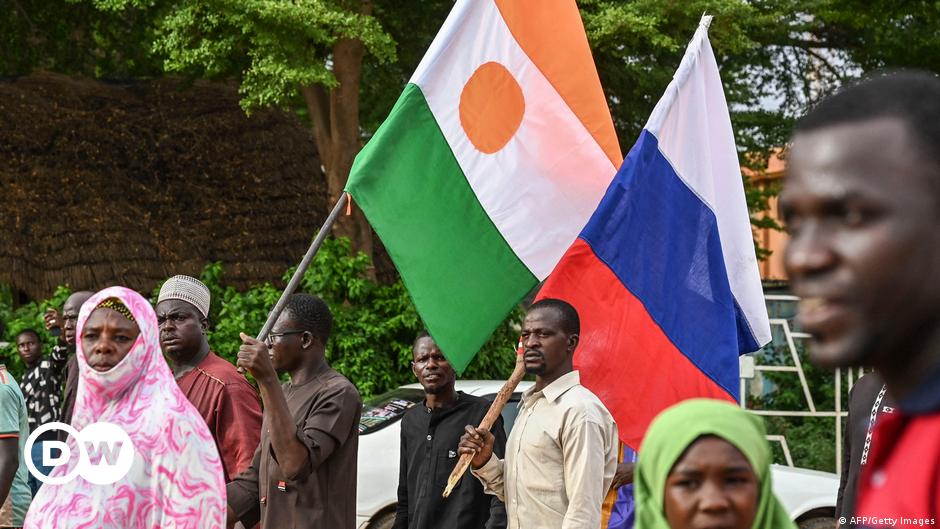- cross-posted to:
- globalnews@lemmy.zip
- cross-posted to:
- globalnews@lemmy.zip
Russian military personnel arrived in Niamey to train their soldiers and set up an air defense system. Russia has been trying to build stronger ties with several African nations currently ruled by military juntas.
The Russian defense ministry sent military personnel and trainers to Niger on Wednesday to install systems and train soldiers, Nigerien state TV RTN said.
The channel showed people and goods being unloaded from a military cargo plane, with images showing Russian Ilyushin-76 aircraft.
The dispatch of Russian personnel to the African nation is part of a recent agreement between Niger’s military junta leader Abdourahamane Tchiani and Russian President Vladimir Putin. The two countries are trying to increase cooperation.
…
Russia has ramped up efforts to build stronger relations with African nations, positioning itself as a military power without a colonial past.
Prior to the military coup last July, Niger and the US, France and some other European countries were cooperating to fight against Islamist militias in the Sahel region.



I don’t know what the root of the cause here is. It might be fundamental, that you have leaders who object to demands for elections or something like that, and that France cannot afford to do that and is going to have to tolerate dealing with dictatorships – I believe that that was a factor in Mali, where the coup leaders had no intention of elections and didn’t like being told to hold them. It might be that France doesn’t have adequate clout alone. It might be whatever arrangement France is making is otherwise undesirable.
I don’t know what the strategic implications for Europe are, but I do wonder. Both Russia and Africa are suppliers of raw resources to Europe. If Russia can collude with other raw resource suppliers, it might be able to place pressure on supplies to Europe.
I know that Nigeria had been looking at an overland pipeline to provide natural gas to Europe, but that needed to pass through Niger. With the coup participants in control of Niger and them aligned with Russia, I’d imagine that Russia might be well-positioned to block creation of that pipeline.
https://en.wikipedia.org/wiki/Trans-Saharan_gas_pipeline
I also don’t think that it’s viable to just go around Niger. Russia has been involved with a continuous band of countries stretching across the Sahel from the Atlantic to the Red Sea. I don’t follow the geopolitics of the Sahel, so I don’t know all the factors involved, but if that’s not a coincidence, then there’s an overland wall across Africa.
Going from west to east, there’s Senegal:
https://www.london-globe.com/european-union/2023/12/12/senegal-is-the-next-african-country-in-russias-crosshairs/
Mali:
https://en.wikipedia.org/wiki/2021_Malian_coup_d'état
Niger:
https://en.wikipedia.org/wiki/2023_Nigerien_coup_d'état
Chad:
https://www.reuters.com/world/africa/putin-meets-chad-junta-leader-russia-competes-with-france-africa-2024-01-24/
And finally, Sudan, and that finishes the span across the continent.
https://en.wikipedia.org/wiki/Russia–Sudan_relations
Yep, this is the real reason why France threatened Russia with boots on the ground in Ukraine.